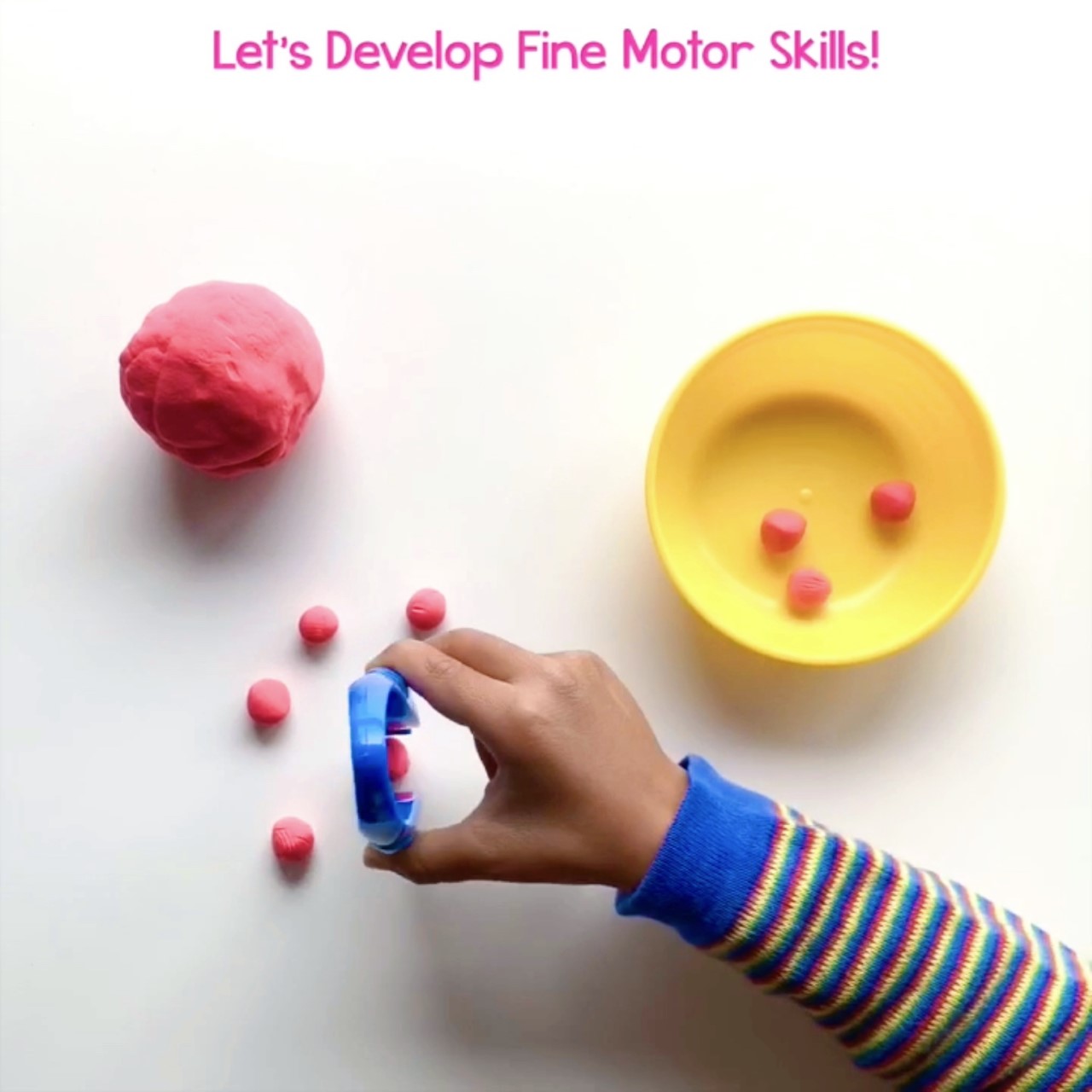No products in the cart.
7 Fine Motor Skills Activities for Kids
December 7, 2019

Fine motor skills refer to the coordination of muscles in the hands and fingers and are used when reaching, grasping and manipulating objects. Developing proficient fine motor skills enables children to become more independent in many areas of their life; from buttoning a shirt and tying a shoelace to writing and picking up objects, mastering fine motor skills is therefore highly beneficial. Discover handy fine motor skills activities by watching the above video and reading about 7 engaging ideas below.
1. Fine Motor Skills Toys
As mentioned by parents.com, children typically start to reach, grab and mouth their favourite toys from about 4 months of age. These actions enable kids to spot the connection between their thoughts and hand movements, paving the way for fine motor skills development. Start with objects such as soft baby blocks and board books for little hands to grasp, then fine motor skills toys for toddlers and children as your child grows older. Giant nuts & bolts and spinning fine motor skills toys are excellent for children learning how to manipulate different objects. Plus, they also promote colour and shape recognition. Similar fine motor skills toys for toddlers include rainbow peg boards and stacking toys.
2. Play Dough Fine Motor Activities
For kids who love hands-on learning, play dough is a superb resource! It is versatile, entertaining and perfect for sensory play. Simple fine motor activities such as shaping and moulding dough to create desired shapes improves hand strength and dexterity. Children can roll the play dough into small balls, then practice picking them up using jumbo tweezers and transfering them into a bowl. A game with similar principles is Pick-A-Berry; one of the many eco toys on WordUnited, this interesting game increases fine motor skills development whilst having fun!
3. Blocks and Counters
Build creativity with blocks and counters! Blocks are wonderful for many age groups, as they motivate children to practice counting, gripping and controlling their hands. For babies and toddlers, chunky soft baby blocks like these TickiT construction bricks are a great choice. Children may also enjoy the following eco toys: My First Building Blocks and Sensory Coloured Water Blocks. In addition to supporting fine motor skills development, blocks can also boost imagination, as children create endless scenarios with their bricks. For a free printable, take a look at this colourful Rainbow Counter Placing resource.
4. Threading Toys
Lacing and threading toys require a host of skills, from hand-eye coordination to fine motor skills. You can also download these free threading cards, then laminate them to use again and again. Children can carefully cut out the different shapes and hole punch the cards. Additionally, try eco threading toys such as this lacing ring or this lacing butterfly made from sustainable materials. Kids can make patterns with this lacing bead set or practice first sewing skills with this fabulous sewing kit. Another enjoyable activity for kids may be creating their own necklaces with a sparkling jewellery making kit.
5. Dolls and Snuggly Toys
Snuggly toys are excellent companions for providing comfort, boosting imagination and encouraging role play, but they are also a brilliant way to help young children develop fine motor skills. When dressing dolls and snuggly toys, children are unknowingly strengthening their hand and finger muscles, which in turn aids fine motor skills development. Check out these handcrafted fairtrade dolls that are terrific for babies and toddlers. Moreover, for children aged 3 and above, Lottie Dolls have realistic body shapes, interchangeable outfits and are free standing. Designed to empower young minds to think creatively, Lottie dolls such as this kite flyer or wildlife photographer are excellent examples of educational toys for children.
6. Puzzles and Activity Cubes
Puzzles are fabulous fine motor skills toys for children of all ages. Toddlers can practice improving their grip and manipulation of object with jumbo jigsaw puzzles, such as this chunky wooden dinosaur puzzle or digger jigsaw. Toddlers may also enjoy soft silicone activity cubes. Equally, older kids can also benefit from jigsaws, which makes them ideal kids learning toys. Take a look at this 2-in-1 World Tour Puzzle or put your space knowledge to the test with a planets puzzle. If your child is looking for an extra challenge, why not have a go at making a 3D puzzle!
7. Colouring Books and Pencil Control Activities
A calm and cosy activity for all aged children is colouring! Whether it is toddlers using easy-grip crayons or children using pencils, colouring activities promote pre-writing skills, colour recognition and creativity. Not to mention, colouring sheets help children to improve their pencil control. With plenty of colouring books to choose from, here are some of our favourites… Colour in the natural world with this touch and feel colouring book or discover a passion for STEM toys with this art activity STEAM book. Looking for a challenge? Try You Can’t Possiby Colour This, a book filled with optical illusions that will have you scratching your head as you figure out how to colour objects that do not exist in real life. Alternatively, you can also find a range of free printable colouring sheets and pencil control activities on our Free Resources Hub.
For more educational toys and learning resources, browse wordunited.com!



 01782 698558
01782 698558








